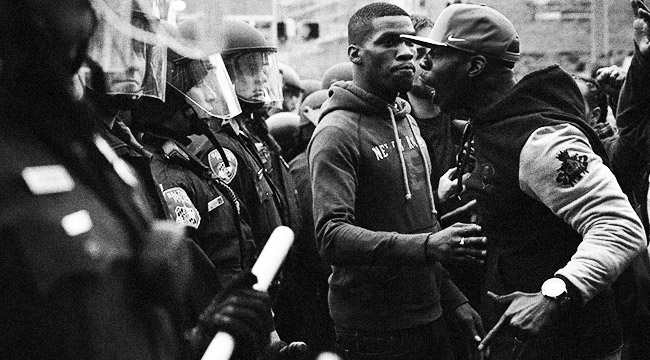In June of 2015, public confidence in law enforcement hit a 22-year low. This past June, the number rebounded by 4%, though the confidence of non-whites stayed exactly the same (39%). These numbers are disappointing, but they certainly aren’t shocking. The past two years have been plagued by highly visible cases of black men, often unarmed, shot by the police. Televised protests and discourse across social media have delivered these stories to the mainstream, making them more visible than similar cases from 2004 — when public confidence in police hit 64% (an all-time high).
Widespread outcry for better police accountability — supported by Black Lives Matter, the ALCU, and numerous high-profile celebrities — has led to a dramatic spike in body camera use by law enforcement across the country. A joint survey by Major City Chiefs and Major County Sheriffs revealed that only 5% of reporting cities and counties did not have immediate plans for body worn recording devices. This push was certainly aided by President Obama, who earmarked $75 million for body cameras across the country in 2014.
But as the cameras become ubiquitous, a larger question bubbles to the surface: Who gets to see the footage?
A debate over this issue is currently raging in Los Angeles — where the historically cloistered police department doesn’t allow the public to view body cam footage. It’s a policy that’s been heavily criticized by the American Civil Liberties Union (ALCU), who recommended that LAPD not receive any more Department of Justice (DOJ) funding for body cams until they shifted their approach (ultimately, the DOJ did give LAPD an addition $1 million grant).
“LAPD has one of the worst body camera policies in the country,” says Peter Bibring, Director of Police Practices for the ACLU of Southern California. “If departments don’t release the footage, it doesn’t help transparency.”
The ACLU has been epically clear about their position, repeatedly insisting that the current policies actually further erode public trust of law enforcement, a point which the Police Protective League disputes.
“In our world of law enforcement, I think it’s the best body camera policy in the country,” insists Craig Lally, President of the Los Angeles Police Protective League.
Los Angeles mayor Eric Garcetti stands with Lally and LAPD. He was reported by the LA Times saying:
“I won’t do that [release body cam footage] when there are rape victims, I won’t do that when there are domestic violence victims. I won’t do that when we have trials that will result [from the videos], where we need to have the evidence be untainted.”

The ACLU believes that the LAPD, the Police Protective League, and the Mayor’s Office are dodging the core issues at play. Bibring doesn’t want videos to be public in cases of rape or domestic violence, in which the victim may not want to be on the public record. His office simply wants to ensure transparency in cases where body cam footage might shed light on potential police misconduct, or when the footage was requested by private individuals after police interactions.
Bibring’s point is underscored by Lisa Simpson, whose son, Richard Risher, was killed by police in July. Simpson has publicly questioned whether her son had a weapon (police say a gun was found in close proximity to his body) and has fought for the right to see any available dash cam and body cam recordings.
“I’m telling the world that the body cams we pay taxes for,” Simpson says, “they’re not for us. They’re for the police to review before they do their report.”
Bibring sees this as a flawed system. “The fact that the department is giving them the opportunity to tell a story that’s consistent with the video — it undermines their credibility.”
These issues aren’t just contested in LA county, North Carolina also has laws blocking the release of bodycam footage, while New Hampshire has taken an approach much more in line with the ALCU’s stance: requiring departments to retain data, and releasing footage pursuant to “legitimate public records requests.” The same issues are being wrestled over across the country.
Even Mayor Garcetti admits that exceptions to the rule might be called for. “Will there be extraordinary occasions where the chief will have to use his judgment?” he said. “I expect him to. If the city is about to … erupt in violence or something where we might want to share to bring that down, absolutely.”
For now, Simpson remains stymied, and frustrated with a system that doesn’t seem to be on her side. “I don’t have a police report, I don’t have an autopsy report,” she says. “That’s why I fight so hard.”
It’s a battle that she’s sure to continue, and one which will undoubtedly play out in a variety of ways as we wrestle with the many complexities of the body cam era.
